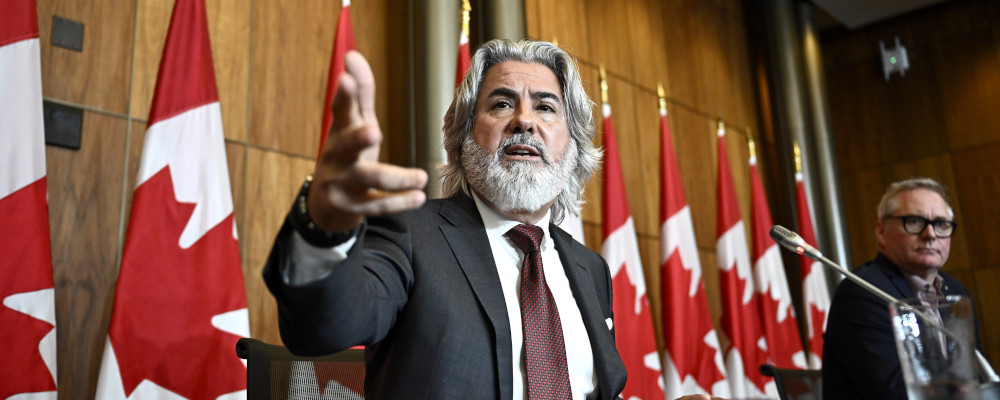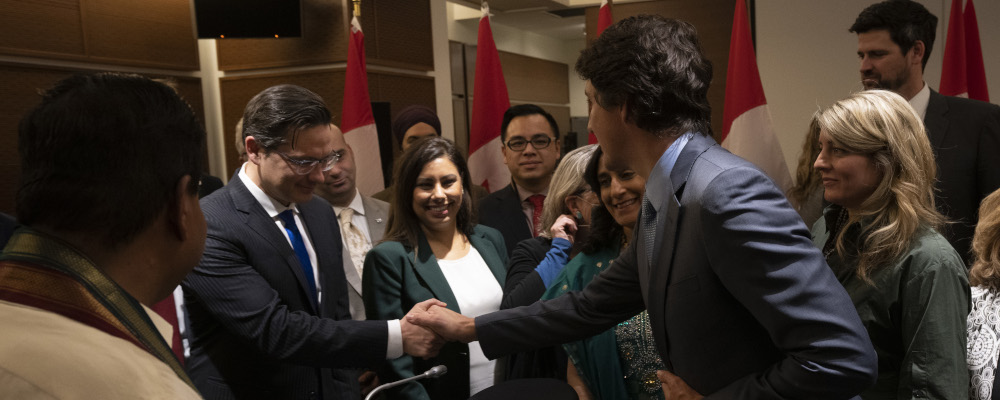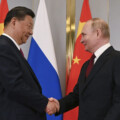The Liberal government’s Bill C-18, now known as the Online News Act, is being promoted as a way to help save a Canadian news industry in crisis.
And it is certainly in crisis. Advertising revenue has shifted dramatically from traditional news publications to online platforms such as Google and Meta. Print publications are consolidating or dying. The proposed merger of Postmedia and Toronto Star owner Nordstar has fallen apart.
Online platforms act as intermediaries that don’t produce content but rather direct users via search engines or links to existing content produced by others. Currently, these digital platforms negotiate financial compensation directly with individual news providers. Bill C-18 would now force a government-mandated formula for compensation that is estimated by the Parliamentary Budget Office to add $329 million in additional revenue to Canadian news outlets and broadcasters that employ at least two journalists. The PBO estimated that about $247 million would go to broadcasters such as the CBC, Rogers, Shaw, and Bell, while newspapers and online media would get about $81.5 million a year.
The goal was to shrink the imbalance in negotiation between Canadian news outlets and large dominant digital platforms by forcing a system of negotiated compensation. If parties are unable to reach an agreement as to the compensation for used content, forced “final offer arbitration” would ensue, meaning that an appointed arbitrator would choose between the final offer proposed by each party. The winning party could go to court to force payment if necessary.
In addition, the Canadian Radio-television and Telecommunications Commission would be given new powers to oversee the process by creating an enforceable code of conduct that would guide negotiations, determine which companies the act applies to, manage complaints, award penalties for non-compliance and have the regulatory power to govern administration of the Act.
The concept superficially sounds good. Get more money for Canadian news sources and limit the influence of disruptive giant tech companies that have dominated how people now get their news. So why is it looking more and more like an impending disaster?
The only way the Act could work is if Canadian content is important enough to news intermediaries that they will pay considerably more for it and that the regulations don’t impose intolerable restrictions and potentially unlimited forced compensation.
David killed Goliath because he fought the giant on his own terms, fighting at a distance with a slingshot that he was highly experienced in using. If you think you can win the battle between a Canadian David and the Goliaths of Google and Meta, you better have a slingshot and a stone big enough to fell the giant.
Prime Minister Justin Trudeau said that “these internet giants would rather cut off Canadians’ access to local news than pay their fair share is a real problem, and now they are resorting to bullying tactics to try and get their way. It’s not going to work.”
Is it bullying tactics or normal negotiations that take place in the business world? The government thought that Canadian content was so important that they could impose their will and rules on anyone they wanted to. It fits with their repeated political strategy of control and regulation. While the bill is promoted to help keep small outlets in business and be fairly compensated, about three-quarters of the financial benefit calculated by the PBO would go to media giants like the CBC, Bell, and Rogers/Shaw.
Do we really need to focus on finding more funds for the CBC? Canadian Heritage Minister Pablo Rodriguez has said that “a free and independent press is fundamental to our democracy.” The CBC is not independent. It consistently shows its bias favouring the government hand that already feeds it only too well.
There are of course viable alternatives to Bill C-18. We could facilitate fair negotiation between large news providers and media platforms based on the true value and use of the information. This covers the $247 million that Bill C-18 might direct to Canadian media giants. We could also set up an annual fund that would promote Canadian content and better reward those whose content is of greater interest to Canadians and beyond.
The internet media giants could contribute the $89 million estimated to flow to print and other small contributors, supplemented by larger government tax credits to news media and redirection of some of the $1.2 billion in federal funding that the CBC gets. The Public Policy Forum has suggested that such a fund should be administered by a not-for-profit corporation at arm’s length from federal government interference.

Compensation for print media and small outlets can be based on a baseline level of support as well as on the number of clicks to their content. This can be done without the big stick of government control with the ability to change rules as it sees fit. The challenge of gaming the system by “clickbait” that artificially builds payable views can be overcome by AI analysis of views, likely by an algorithm cheaper than the $52 million spent to develop the ArriveCan app.
The government has boxed itself into a political corner that is hard to get out of. Rodriguez is now trying to negotiate a compromise with Google and Meta. Google is still talking but unlikely to accept the deal. Meta appears to have walked away from negotiations. Meta stated that “we have repeatedly shared that in order to comply with Bill C-18 … content from news outlets, including news publishers and broadcasters will no longer be available to people accessing our platforms in Canada.” When you offer a take it or leave it ultimatum without the leverage to make someone take it, they likely will leave it and let you suffer the consequences.
Canadian journalism will now likely pay the price of the government’s hubris and miscalculation.
Recommended for You

Ginny Roth: J.D. Vance, Pierre Poilievre, and how they slice their economic pie

David Polansky: As President Biden leaves the race, will the Democratic Party hodgepodge hold?

Peter Menzies: The mainstream media should love Doug Ford, now that he’s subsidizing them

Geoff Russ: A future Conservative government must fight the culture war, not stand idly by









